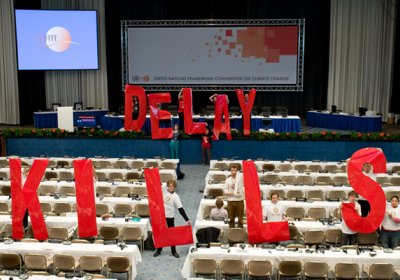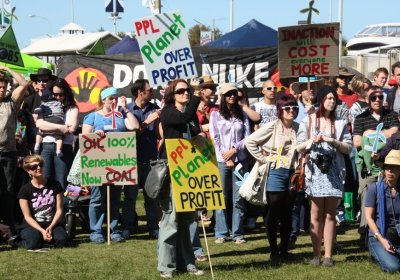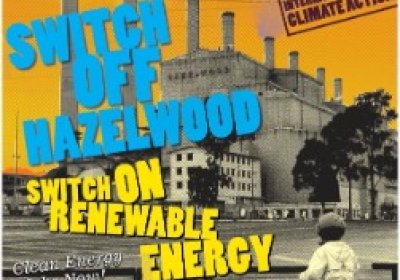Climate change
There is something rotten in the state of Victoria. The legacy of secrecy in government reached a high point under Jeff Kennett’s Coalition state government in the 1990s. It continued under the Bracks Labor government and the current John Brumby Labor government. The main reason for this was widespread privatisation and the policy of funding infrastructure projects through public-private partnerships (PPPs) — a policy begun by the Kennett government and continued by Labor.
Green Left Weekly’s Simon Butler asked five Australian climate activists for their thoughts on the current state of the movement. Phillip Sutton is the convenor of Melbourne’s Climate Emergency Network and co-author of the 2008 book Climate Code Red. Adam Lucas is coordinator of Beyond Zero Emissions Sydney and lectures in the Science and Technology Studies Program at the University of Wollongong.
- Previous page
- Page 11
- Next page











